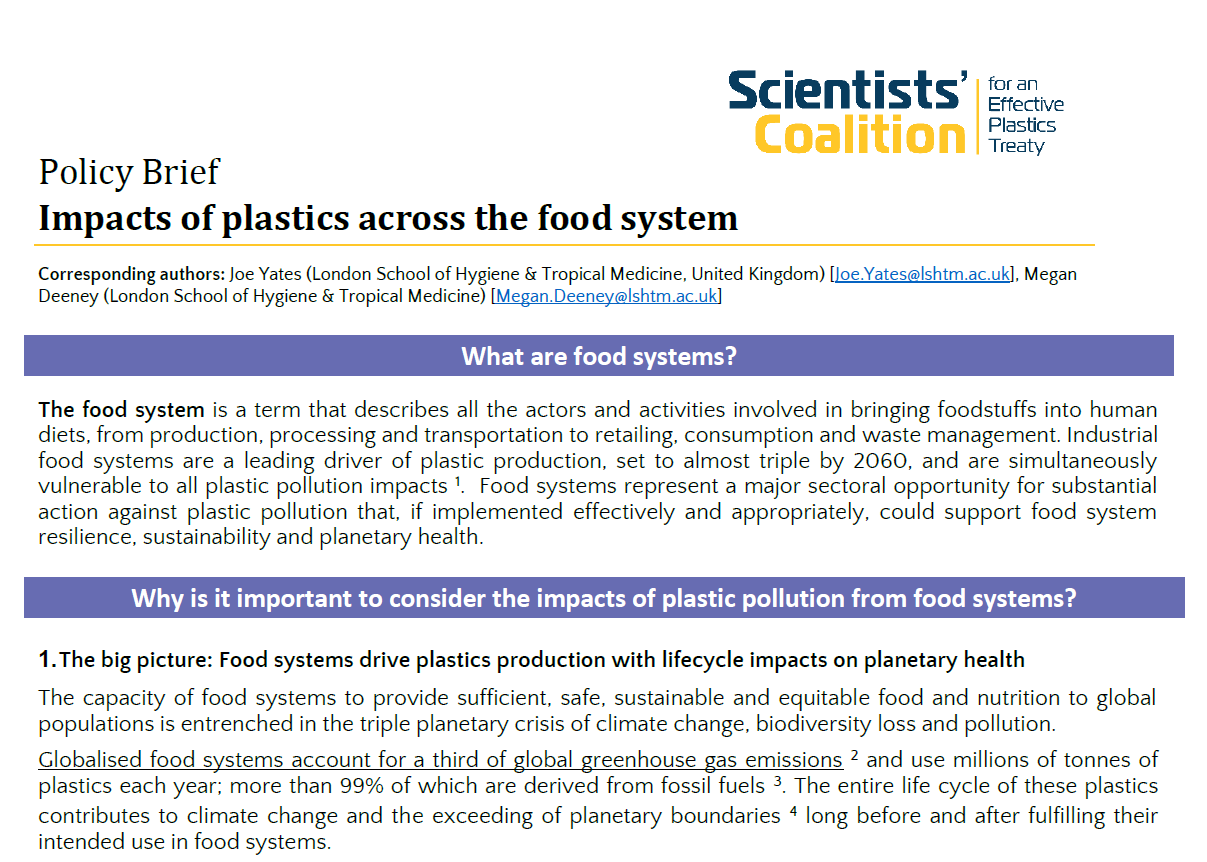
A team of researchers, led by IMMANA, has published a preprint rapid realist overview, linking climate change to food systems, nutrition and nutrition-related health (FSNH). With the aim of identifying priority areas for action and research, the authors systematically searched and analysed synthesis literature to produce an interactive Evidence and Gap Map (EGM).
The overview includes 844 synthesis reports and was supplemented by an expert consultation. The largest clusters of evidence were those describing climate impacts on crop and animal source food (ASF) production and emissions, with comparatively few reports assessing climate change related to nutrition-related health, or "middle” of the food systems.
The team identified four key evidence gaps
1) Research on whole food systems or post-harvest elements is lacking and may be key in developing climate mitigation strategies.
2) There is insufficient research evaluating relationships between climate change and nutrition-related health outcomes, particularly among vulnerable populations.
3) There is a need for methods (and additional data required) that can a) identify inflection points or levers for intervention, b) incorporate complex dynamics and characterize trade-offs, and c) be understood and applied in context-specific, localised ways for decision-making.
4) The promotion of interdisciplinary collaborations will be essential to producing and translating evidence into action and will need to focus on fairness and co-production.
Numerous reviews and individual studies have examined the diverse connections between climate change and food systems, nutrition, and health. Nonetheless, this is the first rapid realist overview that analyses the full breadth of intersections between climate change and FSNH, with a complementary interactive tool (EGM).
By recognizing these research gaps, we can advance our understanding of these complex relationships and coalesce recommendations for future directions. Find out more about the creation of the map and findings in the new preprint: Intersections of climate change with food systems, nutrition, and health: an overview and evidence map.
Explore the Evidence and Gap Map




